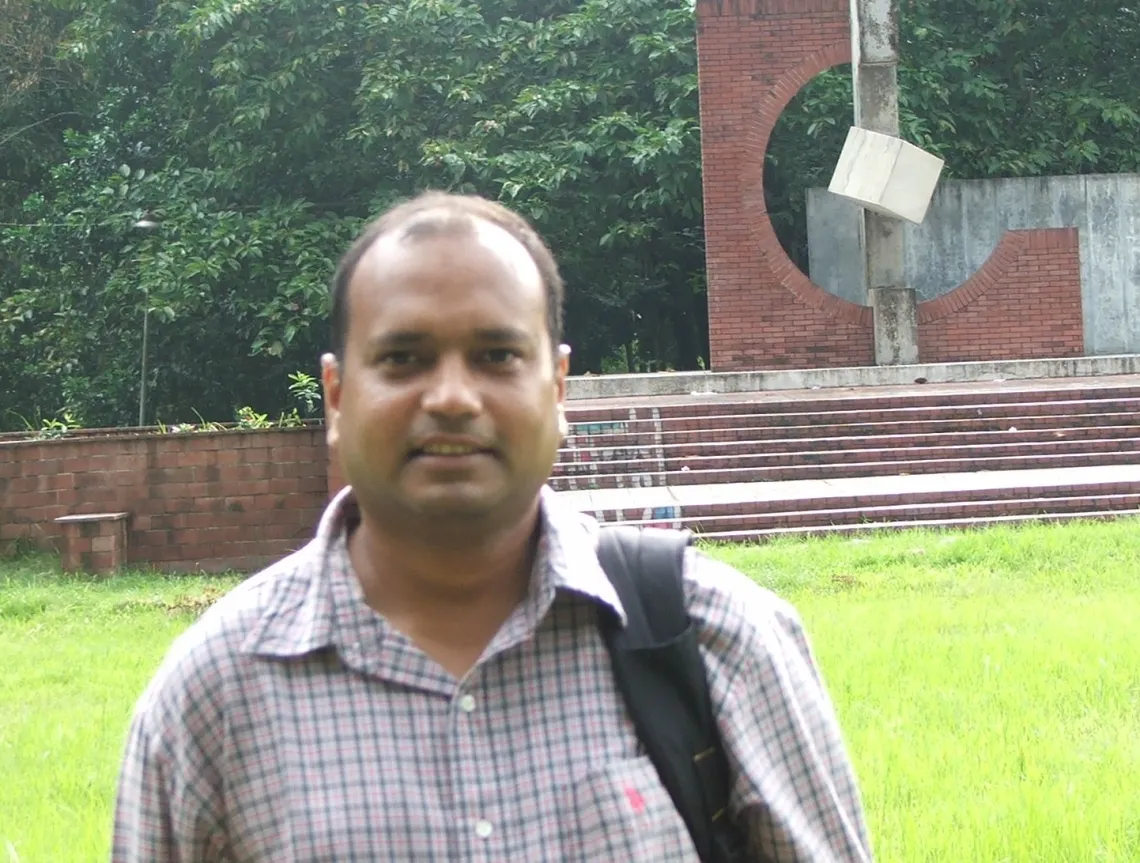Spotlight on Saleh Ahmed - American Philosophical Society and Applied Research in Anthropology

Because many funding opportunities require US citizenship or residency, finding funding can be particularly difficult for international students. However, opportunities do exist for international students. As I have worked with Saleh Ahmed, an international student in Arid Lands Resource Sciences, I have been impressed with his persistence in looking for and applying for funding. I have also been impressed with the way in which his work and ideas have developed over the past year. I asked him to share his experience applying for funding with all of you.
If you get rejected, take it as an opportunity for success
Growing up in a small town, named “Darsana” under the Chuadanga district in southwest Bangladesh, I was interested in helping to improve the well-being of the people around me. This interest helped me to find my academic and intellectual focus in environmental issues. I am particularly interested how people interact with nature and vice versa. Therefore, University of Arizona was a rational choice for me; it is a global center for research and development that focuses on issues like climate change adaptation, international development, water security, and livelihoods.
Currently I am a Ph.D. candidate in Arid Lands Resource Sciences, which is one of the Graduate Interdisciplinary Programs here at the university. I am also doing a minor in Global Change which allows me to combine knowledge from social, behavioral, and physical sciences. My research aims to advance knowledge about human adaptations to climate change by analyzing the role climate plays in the lives of Bangladeshi farmers along the Bay of Bengal and how farmers can effectively use climate information in their adaptation decisions.
I recently applied to several grants and was rejected by many of them. Specifically, I would like to share my experience with the NSF Doctoral Dissertation Research Improvement Grant (NSF DDRI-G) under the Geography and Spatial Sciences Program (GSS). Even though I did not receive the grant, learning about the process of proposal development and submission was most rewarding. I collaborated with a number of colleagues here at UA, as well as colleagues from other universities, who substantially helped improve my proposal. Through this process, I learned how to write a proposal, about the administrative processes involved in the submission of a federally supported grant, and about the review process for a grant like the DDRI-G. Interestingly, my NSF reviewers were very different in their evaluations of my proposal. To me the most useful suggestions were from the reviewer who ranked my proposal as “poor.” Based on all three of the reviewers’ suggestions as well as feedback from my committee members, I am now revising the proposal, and I expect to re-submit a stronger proposal for the upcoming round.
Despite my unsuccessful attempt with NSF DDRI-G, I received several grants that will support my fieldwork: the Lewis and Clark Fund for Exploration and Field Research (American Philosophical Society), A. Richard Diebold, Jr. and The Salus Mundi Foundation Graduate Research Award, (Bureau of Applied Research in Anthropology, UA), Rafe Sagarin Travel Award (Institute of the Environment, UA), and Global Change Travel Award (Global Change Minor, UA). My research is also funded by the International Research and Application Project (Institute of the Environment, UA). In addition, I have received the Confluencecenter Graduate Fellowship to conduct a creative project on using street theatre to disseminate climate information to local farming communities in coastal Bangladesh.
The most important thing I have learned through the grant application processes is that you can get better by applying to a few grants. I was never afraid of being rejected. I was always eager to know what reviewers thought about my proposal and application.
One of the most helpful strategies for me is to discuss my proposal with colleagues because that helps to refine my thoughts and to better understand how I can convey my message more clearly. Sometimes I have found it helpful to contact the funding agency. While applying for the Lewis and Clark Fund, I was not sure about their funding focus. So I made contact with the Program Director, who was extremely helpful. In addition, since English is not my first language, I usually allow extra time to edit and to ask for help from colleagues.
The only way you can improve your ability to apply for funding is to just apply. If you continue to apply and to think critically, you will understand that there is a pattern that you can follow. Talk with people who applied and/or received the grants. Learn from peoples’ successes as well as from their failures. Each funding organization/source has different priorities which you can address in your writing. Do not be afraid of writing a poor first draft. Take that first draft as an opportunity to talk with your colleagues and professors. Remember that the UA has some amazing resources to help you to craft a good and persuasive application. Never be discouraged. If you get rejected, take it as an opportunity for a future success. If you learn from your mistakes, that’s the best thing you can earn in addition to dollar amounts. Make sure you always think and consider reviewers’ comments/suggestions if you plan to re-submit your proposal. I understand the opportunities are limited for international students like me. However, still there are a handful of funding sources that actually prefer to fund someone who has more local and/or cultural knowledge.
Please don’t hesitate to contact me if you have any query, are looking for advice or support in this application process.

